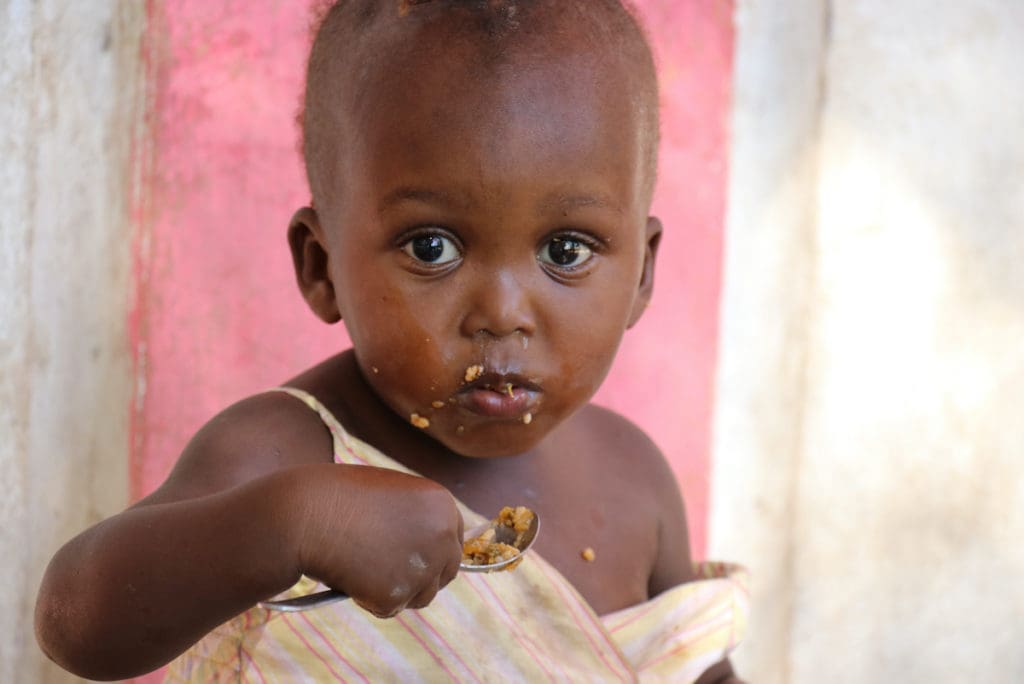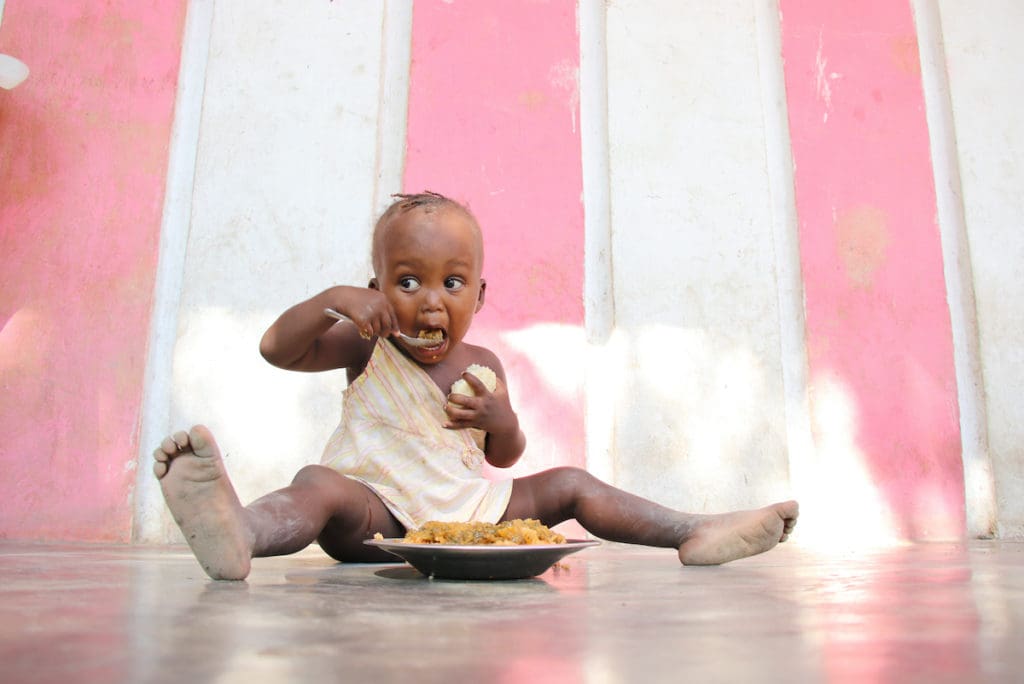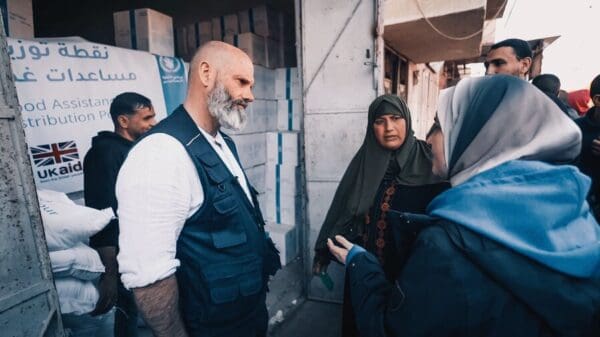This Is What Extreme Hunger Looks Like Through the Eyes of Seven Small Children, Told in Photos

We marvel at how quickly children grow – their bodies and minds taking shape before our eyes. It’s hard to imagine there’s a different reality for one in five kids. Today, 144 million children around the world are physically stunted from lack of food.
Severe malnutrition can mean chronic sickness, impaired thinking and stunted growth – problems that last a lifetime and that affect their futures and that of their communities.
It’s a tragedy, so we at the United Nations World Food Programme (WFP) are working to stop it. More than 60% of the people we serve are children. Meet seven of the brave little humans we’ve met along the way who are fighting hunger, and see what we’re doing to help them.
Fatoom in Yemen

Baby Fatoom and her family were driven from their home in Yemen by conflict: the number one cause of hunger. She was diagnosed with Severe Acute Malnutrition (SAM) at just nine months old. As we do with so many mothers across the world – we made sure Fatoom’s mother Zainab got the nutrition she needed to breastfeed.
In places like Yemen and around the world, nearly 50% of deaths among children under five are caused by hunger.
Ashraful in Bangladesh

Two-year-old Ashraful has his upper arm measured at a U.N. World Food Programme clinic in Bangladesh: It’s a measure that helps determine and identify malnutrition in young ones. At the appointment, his mother collects food supplements like Super Cereal and Plumpy Nut to bring him back to health.
Not having enough to eat from pregnancy to a child’s second birthday can cause irreversible damage. In Bangladesh and worldwide, we focus on children’s First 1000 Days of life.
Loise in Zimbabwe

At just one year old, Loise was constantly getting sick and rapidly losing weight.
“We were going through hard times,” said her mother. “I wasn’t producing enough milk. We didn’t have enough food, enough of anything.”
When children don’t have adequate food, it directly affects their ability to fight off infection, and common illnesses can become life-threatening. With immunizations, nutritional support and monthly check-ins at a U.N. World Food Programme clinic in Zimbabwe, Loise gained weight and stopped getting sick.
Yuilmar in Colombia

Anayury – a refugee from Colombia – uses U.N. World Food Programme vouchers to buy food and make a nutritious meal for her and her baby Yuilmar.
Our First 1,000 Days program in Ecuador focuses heavily on refugees, combining education with direct access to nutritious, locally-produced foods. Otherwise, refugees and their children are often isolated, with little to no social support – but we can step in and help.
Noha in Syria

Five-year-old Noha’s parents struggled to find steady work during the ongoing unrest in Syria, and she and her siblings were at serious risk of malnourishment. With U.N. World Food Programme food vouchers, their mother can buy nutritious foods like milk, yogurt, oil and rice for her family.
Without the right kind of food – and enough of it – in their first few years of life, most kids will have an impaired ability to learn for the rest of their lives.
Leny in Haiti

Two-year-old Leny chomps on a plate of rice, chicken and vegetable stew on the terrace at her Aunt Osena’s house. Osena grows vegetables like spinach, okra, eggplants, papayas, citrus, basil and peppers as part of a group of farmers working with the U.N. World Food Programme to provide fresh food for schools in Haiti.
We connect farmers around the world – more than half of whom are women – to training, resources, local markets and programs like our school meals initiatives. This creates a local ecosystem that can pull them and their kids out of hunger.
David in Nigeria

David, an eight-year-old student, sits in his empty classroom in Makoko, Lagos.
In Nigeria, nearly 10 million kids like David are missing out on school meals because of the pandemic. We’re working with governments around the world to adapt our School Meals program to make sure kids keep getting fed during the lockdown.
Conflict, displacement, poverty and climate change all combine and contribute to child malnourishment around the world – and the COVID-19 pandemic is making kids even more vulnerable.
But you can help us fight this unnecessary, tragic menace. Donate now to support WFP’s programs, and help young ones just like these grow up strong and healthy.




